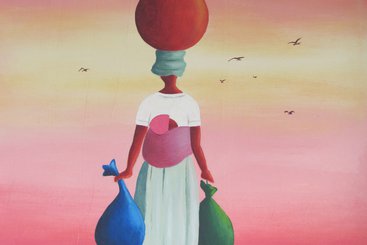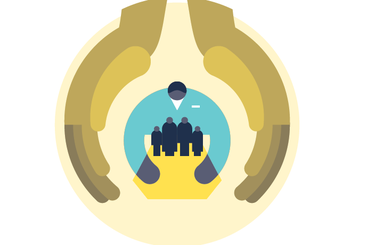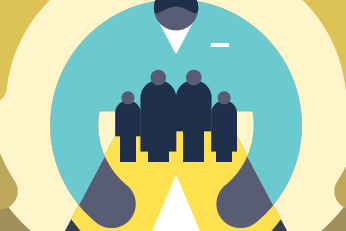Humanitarian actors have tended not to be very good at working together with state social protection systems in countries where they work. Although they are often doing the same thing – identifying those who badly need material help and giving them money every month – they still work in parallel worlds, with different languages, different ways of working and even different objectives. The good news is that this has been recognised as a problem. It leaves countries dependent on international aid, rather than using aid to build up the state’s own ability to meet its responsibilities. And it is hugely wasteful. Creating two systems of bureaucracy is bad enough, but the humanitarian system is typically several times more expensive to operate.
People living in long-term displacement should, one would think, be an appropriate case for the move from humanitarian assistance to state social protection. It is rarely helpful to think of refugees and IDPs as an emergency, once the initial period is over. They typically live for many years in displacement, and being treated as part of the community – with the same rights, access to services and social protection assistance – should make sense for them, the local host population and the host government.
International agencies are not just talking about this, but are already testing solutions to the problem of the disconnect between humanitarian aid and social protection. If that is the good news, the less encouraging news is that they are starting with low hanging fruit. And, in Cameroon at least, that fruit doesn’t prove to be a contribution to a healthy diet, as it had appeared.
The one area of connection between the systems that is firmly under the control of humanitarian agencies is the design of their programmes and so, in places like Cameroon, there is a move to align the transfer values (or, in plain English, to give out the same amounts of money) with the national safety net programme. This may be justified by a claim that it will reduce jealousy from the local population (“increasing social cohesion” in the jargon), that it is more sustainable than relying on international donors or, rather more opaquely, that it will encourage self-reliance. Ultimately, though, it comes from a recognition that the ideal way to respond to a variety of vulnerabilities and need in a population is to have one coherent system that can cater for different needs.
Unfortunately, our recent research in Cameroon found that no-one’s interests were really served by this kind of alignment. The situation of refugees in Cameroon is quite different from the situation of those in the local community who are living in poverty. Refugees tend to have no land; suffer restrictions on movement; usually lack family and wider social networks; and are much likely to be poor. There is no reason to believe that they need the same degree of help as is given to locals who have an independent livelihood, but need a top-up to get by and to move upwards.
Moreover, the alignment turns out to be irrelevant to the frequently mentioned goal of improving social cohesion. Relations are pretty good between the communities, and most of the local population understand that the refugees have greater needs. But more to the point, no one in either community knew how much the others were getting anyway!
The ideal of unifying the two systems remains just as distant a goal as it did before for two fundamental reasons. First, because Cameroon doesn’t have a safety net. It may have a project called a safety-net, but this offers a relatively small number of households meeting certain poverty criteria a monthly payment for just two years – and then they are expected to be able to cope without it. They may well be able to manage after a short-term boost, but refugees can’t necessarily do without help after two years, if they have no land, jobs and lack freedom of movement. Refugees and IDPs need a real safety net, one that they know will catch them and support them as conflicts have caused them to fall off their tightropes and into exile. Until that exists, humanitarian aid will be left filling in the void.
The second reason is because alignment of transfer values does nothing to address the causes of the problem. Social protection and humanitarian aid don’t exist in separate worlds because they have different transfer values, but rather the reverse. Bringing the two worlds together is the imperative. What is keeping them apart is lack of transparency and coordination even in their own worlds. The state safety net project has nothing to do with the ministry responsible for social protection, or , as one informant put it, there's a ministry for government funded social protection and another for World Bank funded social protection. (You can probably guess which ministry is more powerful.) Transparency is little better in the humanitarian sector, where the way in which statements about how many people need assistance are so opaque as to make discussion about it almost impossible. Small wonder that actors in the two systems have little trust of or understanding for each other.
There is currently little incentive for that trust to develop. The government is happy for international agencies to take responsibility for the displaced; and aid agencies are happy to take responsibility for the aid resources given for the welfare of the displaced.
Those are the problems that will need addressing over several years if Cameroon is to be helped to develop its own comprehensive systems for looking after the welfare of its citizens and refugees who seek shelter in its territory. The ideal remains valid – a single comprehensive system, owned by the state, for looking after the minimum needs for those in need, for whatever reason. In places like Cameroon, though, the promise of a quick win from low hanging fruit is just an unfortunate distraction from the long task of creating this.



